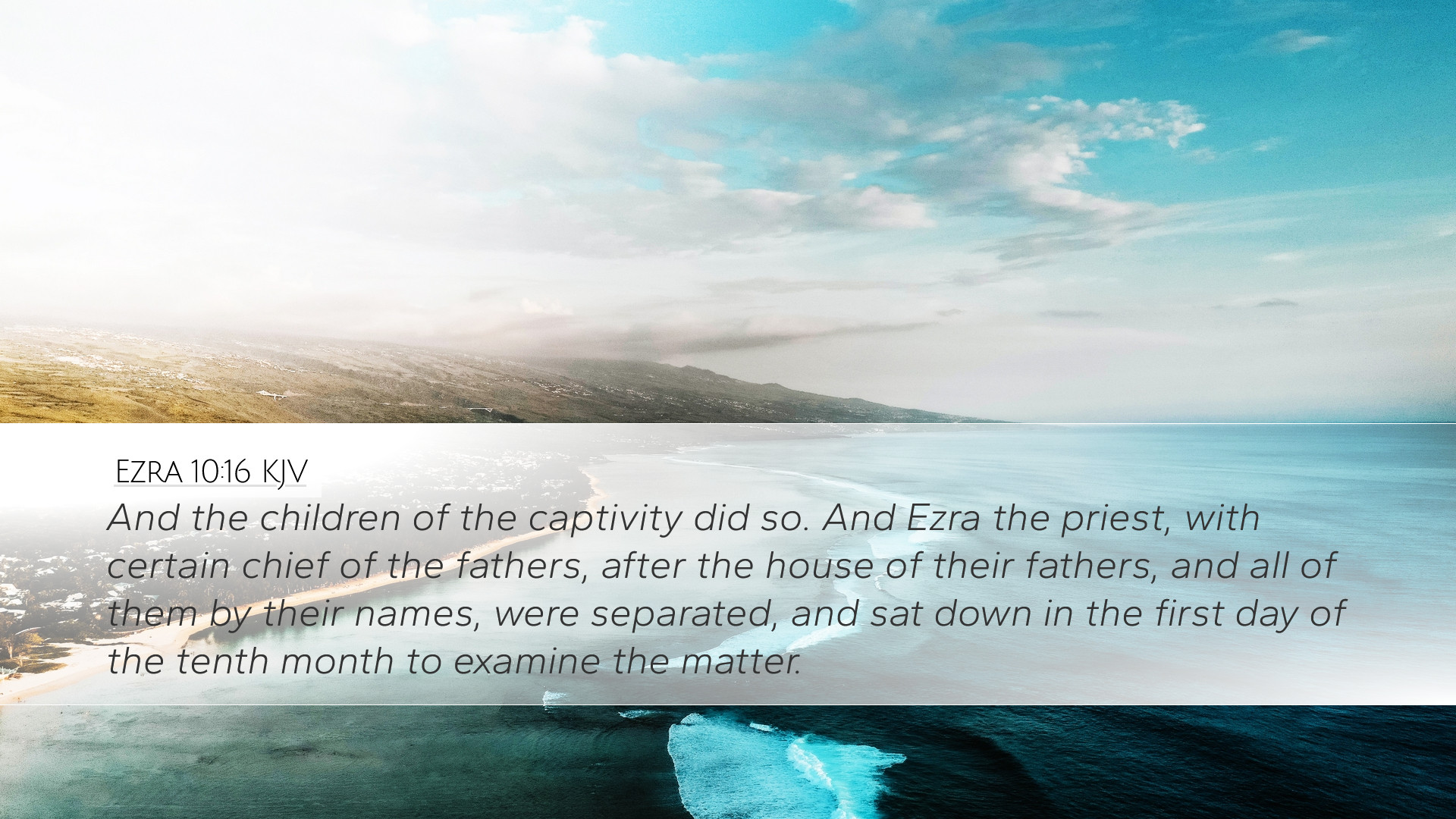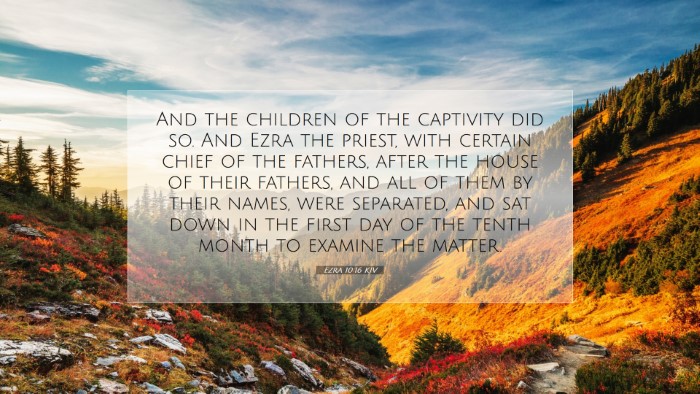Commentary on Ezra 10:16
Introduction: Ezra 10:16 addresses a pivotal moment in the post-exilic Jewish community, highlighting the seriousness of sin and the necessary steps toward repentance and restoration. In this verse, the leaders of the community take decisive action to correct the wrongs influenced by foreign intermarriages. Various commentaries provide profound insights into the implications of this situation for the ancient Israelites and for contemporary readers.
Contextual Background
This verse comes at a significant juncture in the book of Ezra, which chronicles the return of the Jewish exiles from Babylon. Ezra himself played a crucial role in leading this return and re-establishing the Law among the people. The recent intermarriages with foreign nations, which had led to spiritual compromise, necessitated urgent action. The gravity of this matter prompts the leaders to convene and address the issues at hand.
Commentary Insights
Matthew Henry's Commentary
According to Matthew Henry, the leaders were tasked with investigating the situation thoroughly. They were to examine the severity of the sin committed by the people of Israel against God's commandments, specifically the prohibitions against intermarriage with those outside the faith. He emphasizes that this action was not merely social or cultural; it represented a direct affront to God's covenant with Israel. This highlights the theme of holiness and the need for the community to maintain its distinct identity.
Albert Barnes' Notes on the Bible
Albert Barnes elaborates on the specific nuances of this verse. He points out that the leaders acted as representatives of the community in making these difficult decisions. Engaging in a process of self-examination and confession, they demonstrate a communal responsibility for sin. This collective approach underlines the importance of leadership and accountability within the community. Furthermore, Barnes notes that the leaders’ actions resonate with the biblical principle of pulling together as a community to confront sin, which can serve as a model for contemporary church practices.
Adam Clarke's Commentary
Adam Clarke provides a detailed exploration of the motivations behind the leaders' actions. He posits that fear of divine displeasure and a desire to restore true worship were strong motivators. Clarke highlights the idea that repentance must be active and may involve difficult decisions, such as those faced by the people in their commitment to separate from those who would lead them away from God. He emphasizes that this passage not only serves as an admonition for the Israelites but also as an instructive lesson for modern believers on the necessity of discernment in relationships and spiritual alliances.
Theological Implications
The theological implications in Ezra 10:16 extend beyond the historical context to touch upon broader themes of sin, repentance, and community. The leaders’ rigorous approach to resolving the issue of intermarriage can be viewed as an embodiment of God's holiness. For pastors and theologians, this reinforces the critical nature of church discipline, which is often uncomfortable but necessary for maintaining spiritual integrity.
Holiness and Separation
The call for separation from foreign influences reflects ongoing themes of holiness in Scripture. Contemporary application can be found in the New Testament, where believers are encouraged to be “in the world, but not of it” (John 17:14-16). Understanding the nature of this separation helps in navigating the complexities of modern life while remaining faithful to God’s commandments.
Community Responsibility
Ezra 10:16 illustrates a profound sense of community responsibility. Just as the leaders were accountable for the nation’s spiritual state, modern leaders in the church bear similar responsibilities. This passage encourages community vigilance, urging believers to engage with one another in accountability and support in striving for holiness.
Conclusion
In summary, Ezra 10:16 serves as a compelling reminder of the importance of fidelity to God’s covenant, communal accountability, and the serious nature of sin. The insights gathered from the public domain commentaries of Matthew Henry, Albert Barnes, and Adam Clarke provide a rich tapestry of understanding that is beneficial for pastors, students, theologians, and Bible scholars. The call to action found in this verse remains vital for the church today as it seeks to maintain its identity and witness in a complex world.


